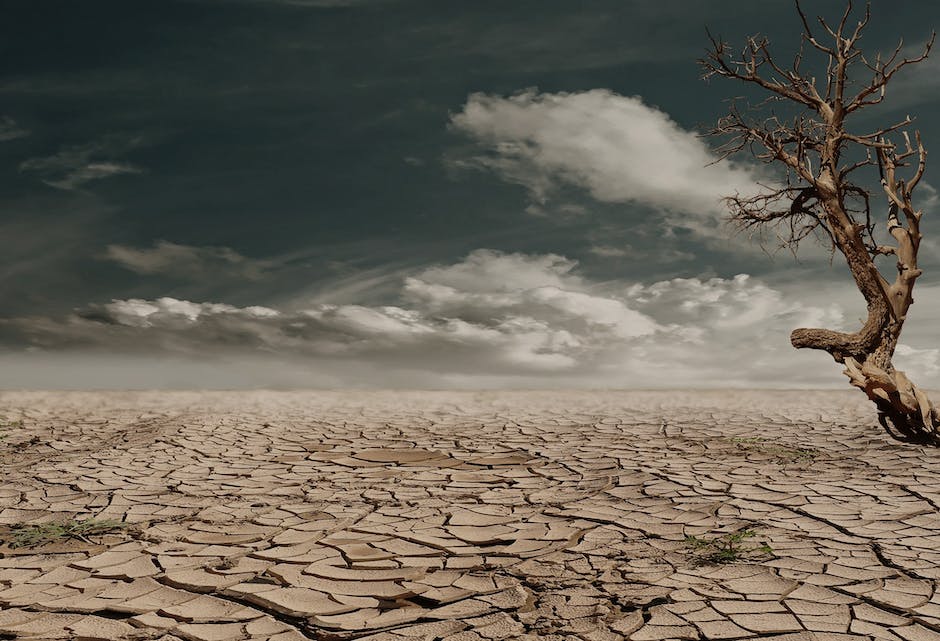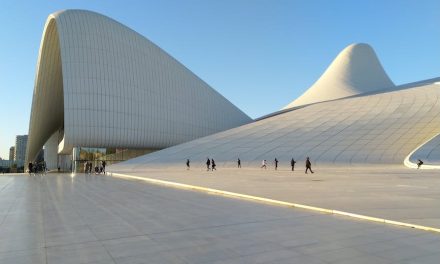Table of Contents
“Arab Leaders in Climate Change: Pioneering Eco-Friendly Solutions”
Introduction
Arab Leaders in Climate Change: Steering Eco-Friendly Initiatives
Arab leaders have increasingly recognized the urgent need to address climate change and have taken significant steps towards steering eco-friendly initiatives. As the impacts of climate change become more evident, these leaders have acknowledged the importance of sustainable development and have committed to reducing greenhouse gas emissions, promoting renewable energy sources, and implementing environmentally friendly policies. By actively engaging in international climate negotiations and investing in green technologies, Arab leaders are playing a crucial role in mitigating the effects of climate change and ensuring a sustainable future for their nations and the planet as a whole.
The Role of Arab Leaders in Climate Change Mitigation

The Role of Arab Leaders in Climate Change Mitigation
Climate change is a global issue that requires collective action from leaders around the world. Arab leaders have recognized the importance of addressing this pressing issue and have taken significant steps towards mitigating climate change. Their efforts have not only focused on reducing greenhouse gas emissions but also on promoting sustainable development and eco-friendly initiatives.
One of the key ways Arab leaders have contributed to climate change mitigation is through the adoption of renewable energy sources. Countries like Saudi Arabia and the United Arab Emirates have made substantial investments in solar and wind energy projects. These initiatives not only reduce dependence on fossil fuels but also contribute to the global effort to combat climate change.
In addition to renewable energy, Arab leaders have also prioritized energy efficiency measures. This includes implementing energy-efficient building codes and promoting the use of energy-efficient appliances. By reducing energy consumption, these measures not only help combat climate change but also lead to cost savings for individuals and businesses.
Arab leaders have also recognized the importance of sustainable transportation in mitigating climate change. Countries like Qatar and the United Arab Emirates have invested in electric vehicle infrastructure and have set ambitious targets for the adoption of electric vehicles. By promoting the use of electric vehicles, these countries aim to reduce carbon emissions from the transportation sector, which is a major contributor to greenhouse gas emissions.
Furthermore, Arab leaders have taken steps to protect and preserve their natural resources. This includes initiatives to conserve water, promote sustainable agriculture, and protect biodiversity. For example, Saudi Arabia has implemented water conservation measures such as desalination and wastewater treatment. These efforts not only help address water scarcity but also contribute to climate change mitigation by reducing water-related carbon emissions.
Arab leaders have also played a crucial role in international climate negotiations. They have actively participated in global climate conferences and have advocated for stronger climate action. Arab countries have been vocal about the need for developed countries to provide financial and technological support to developing nations in their efforts to mitigate and adapt to climate change. By highlighting the challenges faced by Arab countries, these leaders have helped raise awareness about the need for global cooperation in addressing climate change.
In conclusion, Arab leaders have made significant contributions to climate change mitigation through their efforts in renewable energy, energy efficiency, sustainable transportation, natural resource conservation, and international advocacy. Their initiatives not only help reduce greenhouse gas emissions but also promote sustainable development and eco-friendly practices. As the world continues to grapple with the challenges of climate change, the role of Arab leaders in steering eco-friendly initiatives is crucial in ensuring a sustainable future for all.
Promoting Sustainable Development: Arab Leaders’ Initiatives
Arab Leaders in Climate Change: Steering Eco-Friendly Initiatives
Promoting Sustainable Development: Arab Leaders’ Initiatives
Climate change is a global issue that requires collective efforts from leaders around the world. In recent years, Arab leaders have been actively involved in promoting sustainable development and steering eco-friendly initiatives. These initiatives aim to address the challenges posed by climate change and ensure a greener future for the Arab region.
One of the key initiatives undertaken by Arab leaders is the promotion of renewable energy sources. Recognizing the importance of reducing dependence on fossil fuels, many Arab countries have invested heavily in renewable energy projects. For instance, the United Arab Emirates (UAE) has set a target to generate 50% of its energy from clean sources by 2050. This commitment has led to the development of large-scale solar and wind energy projects in the country.
In addition to renewable energy, Arab leaders have also focused on promoting energy efficiency. This involves implementing policies and regulations that encourage the use of energy-efficient technologies and practices. For example, Saudi Arabia has introduced a program called “Saudi Energy Efficiency Program” to improve energy efficiency in various sectors, including buildings, transportation, and industry. This program aims to reduce energy consumption and greenhouse gas emissions, thereby contributing to the fight against climate change.
Water scarcity is another major challenge faced by the Arab region, and Arab leaders have taken steps to address this issue. Many countries in the region have implemented water conservation measures and invested in desalination technologies. Qatar, for instance, has developed advanced desalination plants that use renewable energy sources to produce clean drinking water. These initiatives not only help alleviate water scarcity but also contribute to reducing the carbon footprint of the region.
Furthermore, Arab leaders have recognized the importance of sustainable agriculture in mitigating climate change. They have implemented policies and programs to promote organic farming, reduce the use of chemical fertilizers, and improve water management in agriculture. Jordan, for example, has launched the “Green Corridor” project, which aims to promote sustainable agriculture practices and increase food security in the country. By adopting eco-friendly farming methods, Arab countries can reduce greenhouse gas emissions and preserve natural resources.
To ensure the success of these initiatives, Arab leaders have also emphasized the importance of international cooperation. They have actively participated in global climate change conferences and negotiations, advocating for stronger commitments and actions to combat climate change. Arab countries have also established partnerships with international organizations and developed joint initiatives to address common environmental challenges. This collaboration allows for the exchange of knowledge, expertise, and resources, ultimately leading to more effective and sustainable solutions.
In conclusion, Arab leaders have demonstrated their commitment to promoting sustainable development and steering eco-friendly initiatives. Through investments in renewable energy, energy efficiency, water conservation, and sustainable agriculture, they are addressing the challenges posed by climate change. By actively participating in international forums and fostering cooperation, Arab countries are contributing to the global efforts to combat climate change. These initiatives not only benefit the Arab region but also serve as an inspiration for other countries to take action towards a greener and more sustainable future.
Arab Leaders’ Efforts in Renewable Energy Transition
Arab Leaders in Climate Change: Steering Eco-Friendly Initiatives
The Arab world has long been associated with its vast reserves of oil and gas, making it a significant player in the global energy market. However, in recent years, Arab leaders have recognized the urgent need to transition towards renewable energy sources to combat climate change. This article will explore the efforts made by Arab leaders in promoting renewable energy and their role in steering eco-friendly initiatives.
One of the key Arab leaders in the renewable energy transition is the United Arab Emirates (UAE). The UAE has set ambitious targets to increase its clean energy capacity, aiming to generate 50% of its energy from renewable sources by 2050. To achieve this goal, the UAE has invested heavily in solar energy projects, such as the Mohammed bin Rashid Al Maktoum Solar Park, one of the largest solar parks in the world. This initiative not only reduces the country’s carbon footprint but also creates job opportunities and promotes sustainable economic growth.
Another Arab leader in renewable energy is Saudi Arabia. Despite being the world’s largest oil exporter, Saudi Arabia has recognized the importance of diversifying its energy sources. The country has launched the Saudi Vision 2030, a comprehensive plan that aims to reduce its dependence on oil and promote renewable energy. As part of this vision, Saudi Arabia has initiated the development of the NEOM project, a futuristic city powered entirely by renewable energy. This project showcases Saudi Arabia’s commitment to sustainable development and serves as a model for other Arab nations.
In addition to the UAE and Saudi Arabia, other Arab countries have also taken significant steps towards renewable energy transition. Morocco, for instance, has made remarkable progress in harnessing solar energy. The country’s Noor Ouarzazate Solar Complex is one of the largest concentrated solar power plants in the world, providing clean energy to millions of households. Jordan, on the other hand, has focused on wind energy, with the Tafila Wind Farm being a prominent example of its commitment to renewable energy.
Arab leaders have not only focused on domestic renewable energy projects but have also played a crucial role in international climate change negotiations. The Arab League, a regional organization comprising 22 Arab countries, has actively participated in global climate change conferences, advocating for stronger commitments to reduce greenhouse gas emissions. Arab leaders have emphasized the need for developed countries to provide financial and technological support to developing nations in their transition to renewable energy.
Furthermore, Arab leaders have recognized the potential of renewable energy in addressing socio-economic challenges. By investing in renewable energy projects, Arab countries can create job opportunities, reduce poverty, and improve access to electricity in remote areas. This approach aligns with the United Nations’ Sustainable Development Goals, which aim to eradicate poverty and ensure access to affordable and clean energy for all.
In conclusion, Arab leaders have made significant efforts in promoting renewable energy and steering eco-friendly initiatives. The UAE, Saudi Arabia, Morocco, and Jordan are among the Arab countries leading the way in the renewable energy transition. These countries have set ambitious targets, invested in renewable energy projects, and actively participated in international climate change negotiations. By embracing renewable energy, Arab leaders are not only mitigating the impacts of climate change but also driving sustainable economic growth and improving the lives of their citizens. The Arab world’s commitment to a greener future serves as an inspiration for other nations to follow suit.
Addressing Climate Change Challenges: Arab Leaders’ Strategies
Addressing Climate Change Challenges: Arab Leaders’ Strategies
Climate change is a global issue that requires collective efforts from leaders around the world. Arab leaders have recognized the urgency of this challenge and have taken significant steps to address it. Through their eco-friendly initiatives, they are steering the region towards a sustainable and greener future.
One of the key strategies employed by Arab leaders is the promotion of renewable energy sources. Recognizing the abundance of sunlight in the region, many Arab countries have invested heavily in solar energy projects. For instance, the United Arab Emirates (UAE) has launched the Mohammed bin Rashid Al Maktoum Solar Park, one of the largest solar parks in the world. This initiative aims to generate 5,000 megawatts of clean energy by 2030, reducing carbon emissions by 6.5 million tons annually.
In addition to solar energy, Arab leaders are also focusing on wind power. Countries like Egypt and Morocco have established wind farms to harness the power of the wind and generate electricity. These initiatives not only reduce reliance on fossil fuels but also create job opportunities and stimulate economic growth.
Another crucial aspect of Arab leaders’ strategies is the conservation of water resources. The arid climate of the region makes water scarcity a pressing issue. To address this challenge, countries like Saudi Arabia and Qatar have implemented innovative water management techniques. Desalination plants have been established to convert seawater into freshwater, ensuring a sustainable supply for domestic and agricultural use. Additionally, water recycling and efficient irrigation systems have been adopted to minimize wastage and promote responsible water usage.
Arab leaders are also actively involved in reforestation efforts. The Sahara Forest Project, a joint initiative between Norway, Jordan, and Qatar, aims to combat desertification by utilizing saltwater and solar power to grow vegetation in arid areas. This project not only helps in restoring ecosystems but also provides opportunities for local communities to engage in sustainable agriculture.
Furthermore, Arab leaders are committed to reducing carbon emissions from transportation. The UAE, for example, has introduced electric vehicle charging stations and incentivized the purchase of electric cars. This initiative not only reduces air pollution but also promotes the use of clean energy in the transportation sector.
To ensure the success of these eco-friendly initiatives, Arab leaders are actively engaging in international collaborations. They participate in global climate change conferences and contribute to international funds aimed at supporting developing countries in their efforts to combat climate change. By sharing knowledge and resources, Arab leaders are fostering a sense of global responsibility and cooperation.
While Arab leaders have made significant progress in addressing climate change challenges, there are still obstacles to overcome. The region’s heavy reliance on oil and gas remains a major challenge. However, Arab leaders are aware of the need to diversify their economies and reduce dependence on fossil fuels. They are investing in research and development of alternative energy sources, such as hydrogen and nuclear power, to pave the way for a sustainable future.
In conclusion, Arab leaders are taking proactive measures to address climate change challenges. Through their eco-friendly initiatives, they are promoting renewable energy, conserving water resources, engaging in reforestation efforts, and reducing carbon emissions from transportation. By actively participating in international collaborations, they are demonstrating their commitment to global sustainability. While challenges remain, Arab leaders are determined to steer their countries towards a greener and more sustainable future.
Q&A
1. What is the role of Arab leaders in climate change?
Arab leaders play a crucial role in addressing climate change by steering eco-friendly initiatives and promoting sustainable practices.
2. What initiatives have Arab leaders taken to combat climate change?
Arab leaders have implemented various initiatives, such as investing in renewable energy sources, promoting energy efficiency, and adopting sustainable agricultural practices.
3. How do Arab leaders contribute to global efforts in combating climate change?
Arab leaders contribute to global efforts by participating in international climate agreements, supporting clean energy research and development, and sharing best practices with other nations.
4. What challenges do Arab leaders face in addressing climate change?
Arab leaders face challenges such as water scarcity, dependence on fossil fuels, and socio-economic factors that may hinder the transition to a low-carbon economy.
Conclusion
In conclusion, Arab leaders have been actively steering eco-friendly initiatives in response to the challenges posed by climate change. They have recognized the importance of sustainable development and have taken significant steps towards reducing greenhouse gas emissions, promoting renewable energy sources, and implementing conservation measures. These efforts demonstrate their commitment to addressing climate change and protecting the environment for future generations. However, continued collaboration and commitment from all Arab leaders are crucial to effectively combat the impacts of climate change and achieve a sustainable future.




